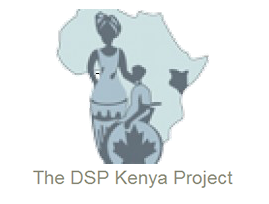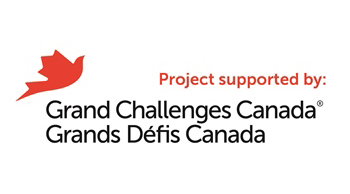5.8.5 – Health-related Quality of Life
| Measure (Authors, Year) | Generic vs Specific, Purpose | Administration, Number of Items, Number of Domains | Measurement Properties |
|---|---|---|---|
Functional Assessment of HIV Infection (FAHI)49 |
HIV-specific Descriptive and Evaluative |
Self-reported questionnaire 47 items 5 domains |
Reliability: Internal consistency reliability (>0.73 Cronbach's alpha for all domains) Validity: Convergent and discriminant validity among adults living with HIV. Responsiveness: responsive to change among adults living with HIV.50 |
Medical Outcomes Study Short Form (SF-36) Questionnaire51, 52 |
Generic Descriptive |
Self-reported questionnaire 36 items 8 domains and 2 summary scores (physical component and mental component, summary scores) |
Demonstrated reliability and validity among people living with HIV. Reliability: Good internal consistency reliability among people living with HIV (all Cronbach alpha values typically > 0.80) and good test-retest reliability. Validity: Demonstrated content validity, criterion validity, construct validity with people living with HIV.53,54 |
HIV-specific Descriptive |
Self-reported questionnaire 35 items 10 domains and 2 summary scores (Mental Component Summary (MCS) and Physical Component Summary (PCS) scores) |
Reliability: Good internal consistency (>0.75 Cronbach's alpha) for all dimensions for people living with HIV. Validity: Convergent and discriminant construct validity with people living with HIV.56,58 |
|
Multidimensional QOL Questionnaire for HIV/AIDS (MQoL-HIV)59 |
HIV-specific Descriptive and Evaluative |
Self-reported questionnaire 40 items 10 domains |
Reliability: Good internal consistency reliability (>0.70 Cronbach's alpha for 8 out of 10 domains) and test-retest reliability (correlation coefficient >0.70 for all domains except cognitive functioning) among people with asymptomatic and symptomatic HIV infection. Validity: Discriminative construct validity among people with asymptomatic and symptomatic HIV infection. Responsiveness: Responsive to change in a number of symptoms, viral load and CD4 count during a 3 month period for people living with HIV starting or changing an antiretroviral therapy regimen.58 |
HIV-specific Descriptive |
Self-reported questionnaire 120 items 6 domains |
Reliability: Good internal consistency reliability for all domains with Cronbach's alpha between 0.70 and 0.90 among people living with HIV from seven culturally diverse centres. Validity: Good discriminant validity among people living with HIV in diverse cultural settings.61,62 |
|
Patient Reported Outcomes Quality of Life-HIV (PROQOL-HIV) Questionnaire63,64 |
HIV-specific Descriptive |
Self-reported questionnaire 43 items 8 domains and 1 global health item |
Reliability: Good internal consistency reliability with Cronbach alphas on domains ranging from 0.77–0.89. Test–retest reliability demonstrated consistency of the measure over time (intraclass correlation coefficient = 0.86). Validity: Good convergent and discriminant validity. Correlations with EQ-5D and Medical Outcomes Study–HIV questionnaires complied with concurrent validity expectations; as well as correlations with self-reported symptom and depression questionnaires. |
49 Cella DF, McCain NL, Peterman AH, Mo F, Wolen D. Development and validation of the Functional Assessment of Human Immunodeficiency Virus Infection (FAHI) quality of life instrument. Qual Life Res. 1996 Aug;5(4):450-63. PubMed PMID: 8840825. http://www.ncbi.nlm.nih.gov/pubmed/8840825.
50 Peterman AH, Cella D, Mo F, McCain N. Psychometric validation of the revised Functional Assessment of Human Immunodeficiency Virus Infection (FAHI) quality of life instrument. Qual Life Res. 1997 Aug;6(6):572-84. PubMed PMID: 9330556. http://www.ncbi.nlm.nih.gov/pubmed/9330556.
51 Ware JE Jr, Gandek B. Overview of the SF-36 Health Survey and the International Quality of Life Assessment (IQOLA) Project. J Clin Epidemiol. 1998 Nov;51(11):903-12. PubMed PMID: 9817107. http://www.ncbi.nlm.nih.gov/pubmed/9817107.
52Ware JE Jr. SF-36 health survey update. Spine (Phila Pa 1976). 2000 Dec 15;25(24):3130-9. Review. PubMed PMID: 11124729. http://www.ncbi.nlm.nih.gov/pubmed/11124729.
53McHorney CA, Ware JE Jr, Raczek AE. The MOS 36-Item Short-Form Health Survey (SF-36): II. Psychometric and clinical tests of validity in measuring physical and mental health constructs. Med Care. 1993 Mar;31(3):247-63. Pub Med PMID8450681. http://www.ncbi.nlm.nih.gov/pubmed/8450681.
54McHorney CA, Ware JE Jr, Lu JF, Sherbourne CD. The MOS 36-Item Short-Form Health Survey (SF-36): III. Tests of data quality, scaling assumptions, and reliability across diverse patient groups. Med Care. 1994 Jan; 32(1):40-66. Pub Med PMID: 8277801. http://www.ncbi.nlm.nih.gov/pubmed/8277801 .
55Wu AW, Hays RD, Kelly S, Malitz F, Bozzette SA. Applications of the Medical Outcomes Study health-related quality of life measures in HIV/AIDS. Qual Life Res. 1997a Aug;6(6):531-54. Review. PubMed PMID: 9330553. http://www.ncbi.nlm.nih.gov/pubmed/9330553.
56Wu AW, Revicki DA, Jacobson D, Malitz FE. Evidence for reliability, validity and usefulness of the Medical Outcomes Study HIV Health Survey (MOS-HIV). Qual Life Res. 1997b Aug;6(6):481-93. Review. PubMed PMID: 9330549. http://www.ncbi.nlm.nih.gov/pubmed/9330549.
57Wu AW, Rubin HR, Mathews WC, Ware JE Jr, Brysk LT, Hardy WD, Bozzette SA, Spector SA, Richman DD. A health status questionnaire using 30 items from the Medical Outcomes Study. Preliminary validation in persons with early HIV infection. Med Care. 1991 Aug;29(8):786-98. PubMed PMID: 1875745. http://www.ncbi.nlm.nih.gov/pubmed/1875745.
58Badia X, Podzamczer D, Casado A, Lopez-Lavid C, Garcia M. Evaluating changes in health status in HIV-infected patients: Medical Outcomes Study-HIV and Multidimensional Quality of Life-HIV quality of life questionnaires. Spanish MOS-HIV and MQoL-HIV Validation Group. AIDS. 2000 Jul 7;14(10):1439-47. PubMed PMID: 10930160. http://www.ncbi.nlm.nih.gov/pubmed/10930160.
59Avis NE. Development of the MQoL-HIV: the multi-dimensional quality of life questionnaire with HIV/AIDS. Quality of Life Newsletter, 17: 3-4. http://www.pro-newsletter.com/images/PDF/qol17_0.pdf. Accessed July 17, 2013.
60O'Connell K, Skevington S, Saxena S; WHOQOL HIV Group. Preliminary development of the World Health Organsiation's Quality of Life HIV instrument (WHOQOL-HIV): analysis of the pilot version. Soc Sci Med. 2003 Oct;57(7):1259-75. PubMed PMID:12899909. http://www.ncbi.nlm.nih.gov/pubmed/12899909.
61World Health Organization's Quality of Life Instrument HIV Group. WHOQOL-HIV for quality of life assessment among people living with HIV and AIDS: results from the field test. AIDS Care. 2004 Oct;16(7):882-9. PubMed PMID: 15385243. http://www.ncbi.nlm.nih.gov/pubmed/15385243.
62Fang CT, Hsiung PC, Yu CF, Chen MY, Wang JD. Validation of the World Health Organization quality of life instrument in patients with HIV infection. Qual Life Res. 2002 Dec;11(8):753-62. PubMed PMID: 12482159. http://www.ncbi.nlm.nih.gov/pubmed/12482159.
63Duracinsky M, Herrmann S, Berzins B, Armstrong AR, Kohli R, Le Coeur S, Diouf A, Fournier I, Schechter M, Chassany O. The development of PROQOL-HIV: an international instrument to assess the health-related quality of life of persons living with HIV/AIDS. J Acquir Immune Defic Syndr. 2012 Apr 15;59(5):498-505. doi: 10.1097/QAI.0b013e318245cafe. PubMed PMID: 22205438. http://www.ncbi.nlm.nih.gov/pubmed/22205438.
64Duracinsky M, Lalanne C, Le Coeur S, Herrmann S, Berzins B, Armstrong AR, Lau JT, Fournier I, Chassany O. Psychometric validation of the PROQOL-HIVquestionnaire, a new health-related quality of life instrument-specific to HIV disease. J Acquir Immune Defic Syndr. 2012 Apr 15;59(5):506-15. doi: 10.1097/QAI.0b013e31824be3f2. PubMed PMID: 22293550. http://www.ncbi.nlm.nih.gov/pubmed/22293550.

 Previous Page
Previous Page




